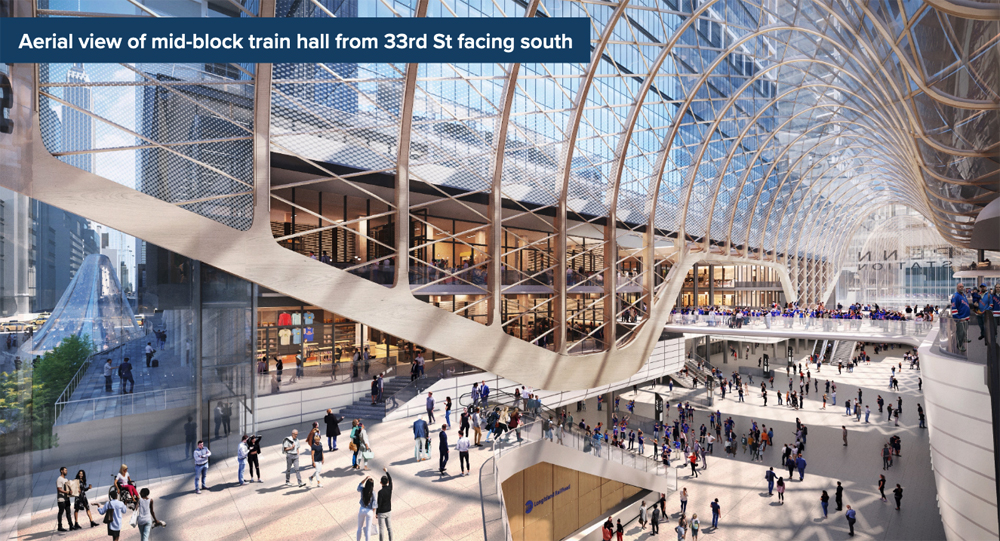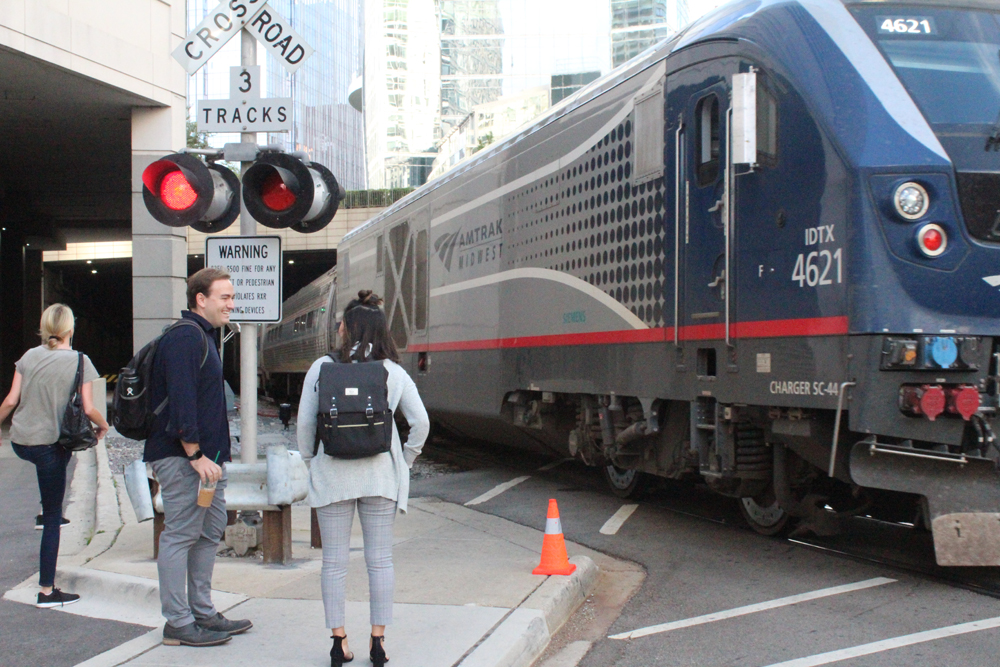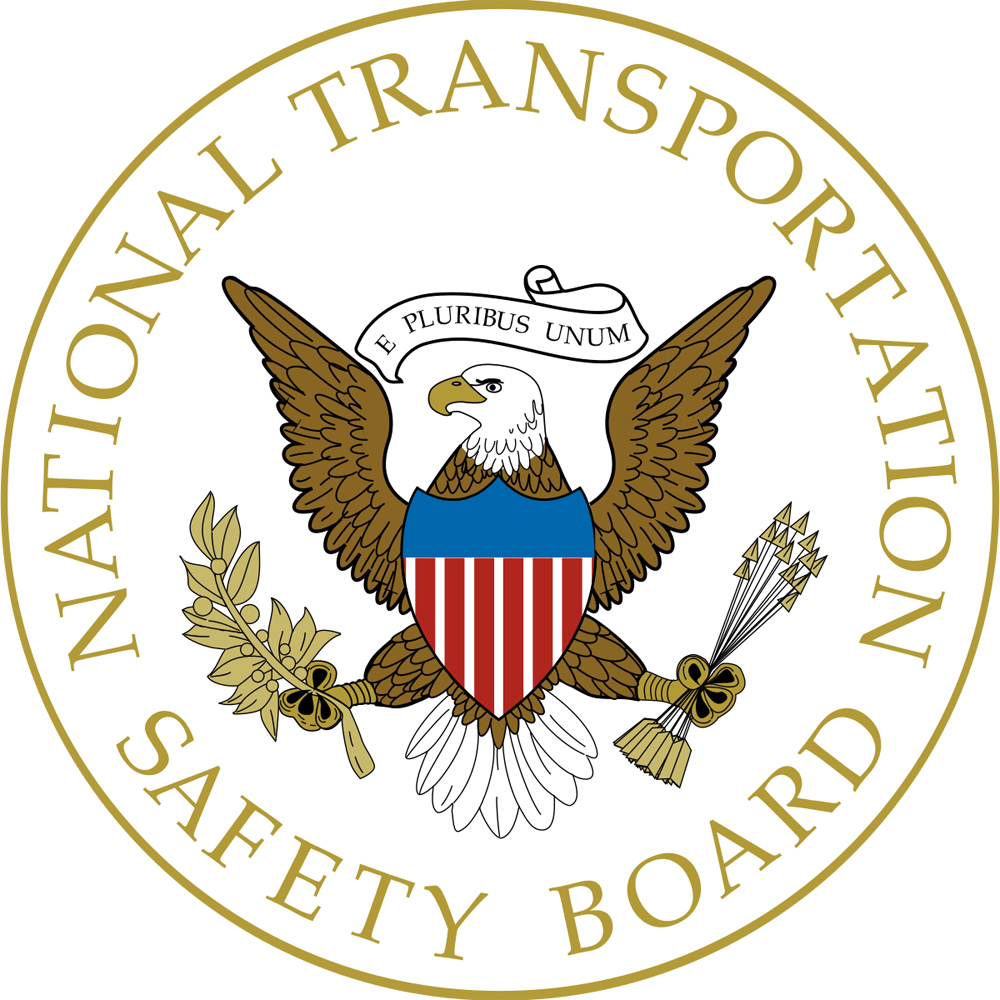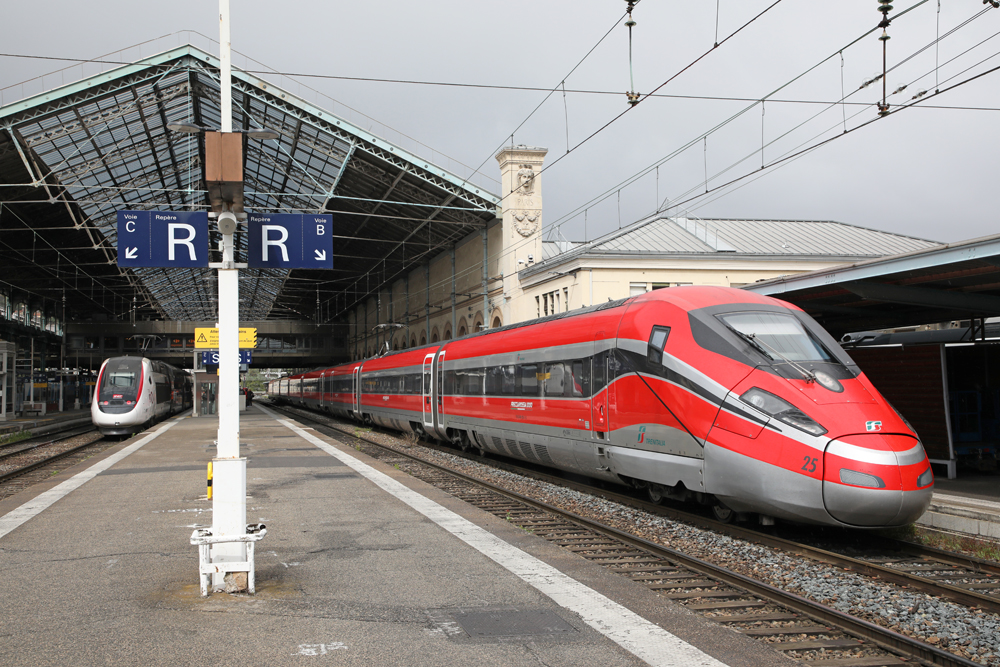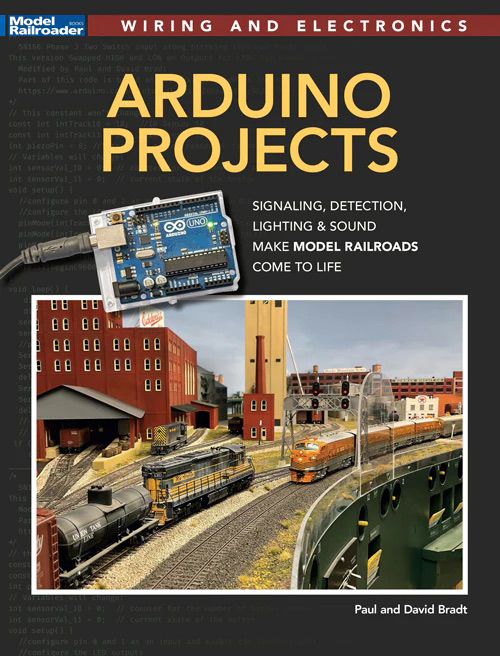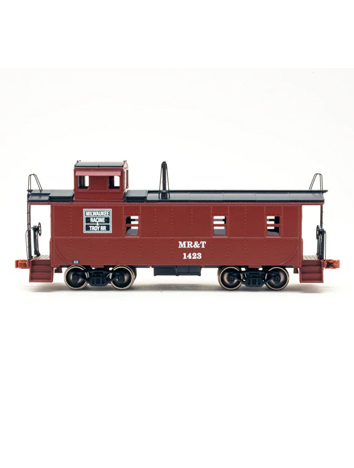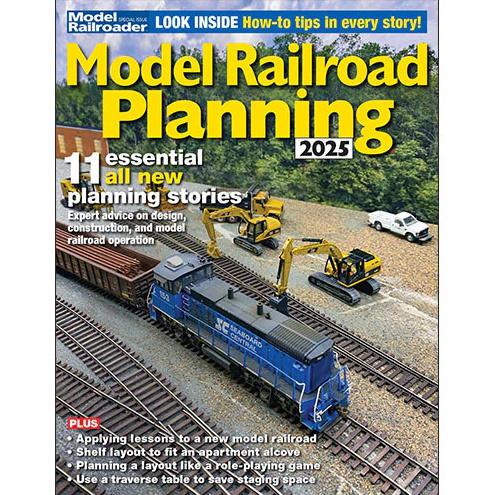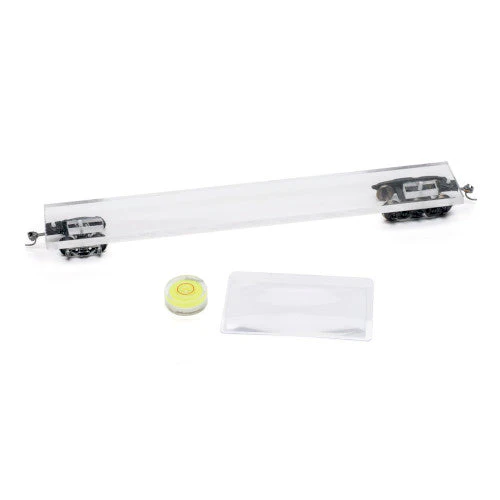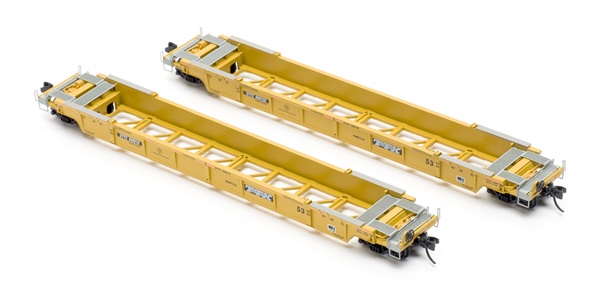
Jacksonville Terminal Co., a relatively new manufacturer that’s been making a name for itself with a line of N scale intermodal containers, is now offering its first freight car, a modern, 100-ton, double-stack well car. The die-cast-metal N scale car features etched-metal end platforms, separately applied brake gear, and body-mounted knuckle couplers.
Prototype and model. Intermodal cars, and specifically the containers they carry, are to modern railroading as boxcars were in the decades before. Intermodal containers carry all sorts of freight, mostly manufactured goods; specialty containers have been developed to carry liquids and temperature-sensitive cargos. The advantage intermodal containers have over boxcars and other rail cars is the cargo doesn’t need to be transloaded when going from ship to truck to rail.
Goods made on one side of the ocean can be packed up and sent directly to a destination on the other side without any intermediate handling, greatly reducing damage in shipment. The prototype for JTC’s car is a common one, seen all over the continent. Owner TTX (formerly known as Trailer Train) leases the cars to any railroad that needs them, so these would be appropriate for any modern model railroad.
Called the Super Stack by builder National Steel Car, the car has a 53-foot container well, designed to handle two 20-foot or one 40-, 48-, or 53-foot container in the lower position. Two more 20-foot containers can be carried on top of two of the same size, or a 40-, 48-, or 53-foot container on top of two 20-footers or a longer container. Though it’s not an issue on our model railroads, NSC touts its Super Stack as having the highest carry- ing capacity of all cars of its kind.
Our two review samples were numbered DTTX 680510 and 680725. Both were built by NSC between May and September 2006 as part of lot no. P5595/06. National Steel Car built 1,099 cars for TTX in that lot; JTC offers its model in five road numbers.
How it matches up. I found a photo online of DTTX no. 680510, one of the car numbers offered by JTC. The profile of the model, as well as the placement of detail parts and markings, matched the prototype. The printing on the N scale car was crisp and legible under magnification, even the smallest lettering above the jack pads and on the top lip of the container well.
Under magnification, I also found some slightly rough spots on the die-cast metal body, particularly the sills under the etched-metal side walkways and the molded-on air line directly beneath it. This unevenness was slight and shouldn’t be noticeable at normal viewing distances. Weathering could conceal any irregularities in the car’s appearance.
I matched the model’s dimensions to those in the specifications for the car lot order. With one exception, all the dimensions I checked were within scale inches of the prototype. The exception was the overall width, which was just a few inches too wide. This is unavoidable, as the interior dimensions have to fit those of N scale containers, and the walls of the car can be made only so thin.
The manufacturer recommends a minimum curve radius of 18″, but noted that the cars performed reliably on curves of 15″ radius. I tested the cars on our N scale Canadian Canyons layout, toting some 53-foot Kato containers, and the cars stayed on track through the 13″ curves of the hidden helix and staging yard. They had some problems clearing one of our tunnel portals on a curve, but I think that’s a problem with the tunnel, not these cars.
Welcome to the neighborhood. It’s always good to see new hobby manufacturers getting into the business. Though JTC has been making intermodal containers for a while, getting into freight cars is a big step. If JTC’s well car is indicative of what’s to come from the company, we can expect good things from them in the future.
Price: $44.95
Manufacturer
Jacksonville Terminal Co. LLC
9526 Argyle Forrest Blvd.
Suite B2, No. 406
Jacksonville, FL 32222 jtcmodeltrains.com
Era: May 2006 to present
Road names: Trailer Train (DTTX reporting marks, five road numbers) Features
•Die-cast metal chassis
•Etched metal end platforms, steps, and
railings
•Magne-Matic couplers, at correct height •Micro-Trains 100-ton trucks, pin-
mounted
•Molded plastic wheelsets, in gauge •Recommended minimum radius: 18″ •Separately applied brake equipment •Weight: .9 ounces (.425 ounces light
according to NMRA RP-20.1)






